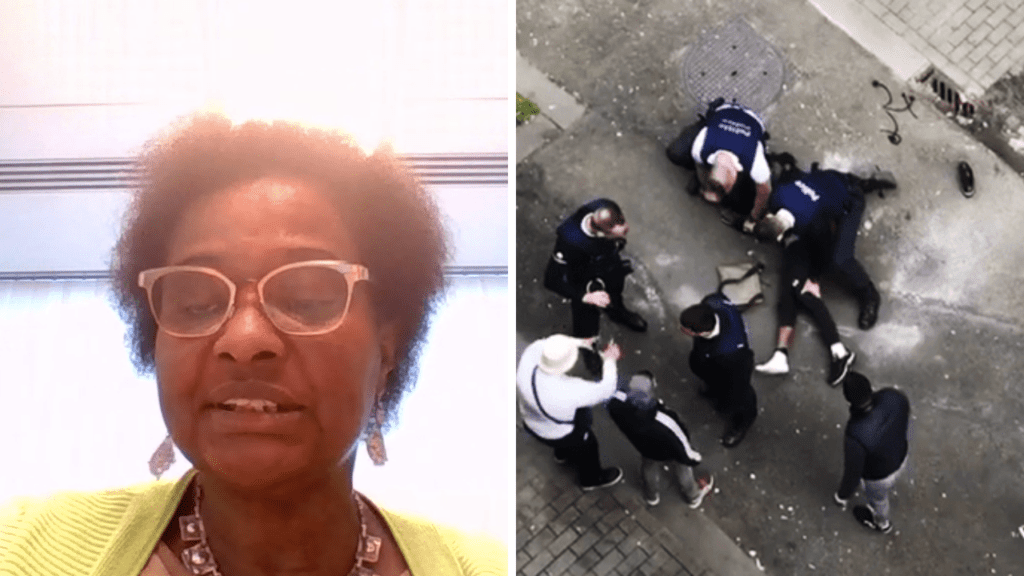A black MEP who said she was "brutally" searched by Brussels police has urged EU governments to take concrete action to fight racial bias in police and stop "tiptoeing" around the issue.
Speaking at a press conference hosted by Amnesty International (AI), Pierrette Herzberger-Fofana, a black German MEP, called for more countries to follow in the footsteps of the UK and gather ethnically disaggregated data on police interventions.
"The fact that many member states still refuse to collect data disaggregated by racial or ethnic origin is at the heart of the problem," Herzberger-Fofana said.
Related News
- 'Would not happen to a white MEP': Brussels police accused of racism
- Police chief acknowledges 'slip-ups', denies institutional racism
- Lockdown uncovered 'disturbing pattern' of racial bias in Belgian police: report
Last week, the MEP said that she was "stopped, searched and intimidated by police for daring to take a picture of them as they harassed two young black men" in Brussels' Gare du Nord.
"The fact of the matter is that police saw a small black woman and they thought they could do whatever they wanted, they did not think that I might be someone with a platform and the ability to challenge their behaviour. Why? Because I'm black," she told attendants.
Herzberger-Fofana's account drew a response from Belgian Prime Minister Sophie Wilmès, who responded to a letter sent by EP President David Sassoli saying that an investigation had been launched into the incident, POLITICO Europe reports.
Referring to a similar run-in with Brussels police involving her assistant, who is also black, the 71-year-old MEP said that both their experiences were "nothing new."
Her comments coincide with the release of an Amnesty International report which found evidence that lockdowns in 12 European countries, including Belgium, had exposed racial bias and discrimination within police.
The report found that Black people and people of North African origin in Belgium made up 40% of the victims of police abuse or of unlawful use of force by officers.
"The brutal killing of George Floyd brought the reality of police brutality into the spotlight, but none of this is new — ethnic minorities have been disproportionately affected by police violence for many years," she said, referring to the US police killing of a black man which sparked global protest against systemic police racism and brutality.
As police in Belgium faced increased scrutiny as users posted footage of police acting aggressively during arrests and interventions, a federal police commissioner brushed away such incidents as "slip-ups."
According to Herzberger-Fofana, governments in Europe must seize the current moment to tackle institutionalised racism within police through concrete changes, namely the collection of data regarding police action.
"We must push for collection of officer data such as is the case in the UK, there should be mandatory collection of data (...) and all such data should be public," she said, also calling on governments to do more to ensure officers are held accountable for unlawful or racist actions.
"It is not enough to give racial bias training to police — those found to have used disproportionate violence towards members of the public must face sanctions."
"Institutional racism within police forces is a problem that will only be solved with direct action — we can no longer tiptoe around this issue," she said.
Gabriela Galindo
The Brussels Times

